
The Historic Heart of Hamburg: Altstadt
Altstadt, the historic heart of Hamburg, offers a rich tapestry of culture, history, and modern vibrancy. Stroll through its cobblestone streets and you'll find a fascinating blend of old-world charm and contemporary attractions. This neighbourhood is home to some of Hamburg's most iconic landmarks, including the stunning St. Michael's Church, the impressive Town Hall, and the bustling shopping street of Mönckebergstraße. Each corner of Altstadt tells a story, making it a must-visit for history enthusiasts and casual tourists alike. The Speicherstadt, a UNESCO World Heritage site, is another highlight of Altstadt. This area is the largest warehouse district in the world, built entirely on timber-pile foundations. Its red-brick Gothic architecture and narrow canals offer a picturesque setting, perfect for a leisurely walk or a boat tour. Museums like the Miniatur Wunderland, which houses the world's largest model railway, add to the allure of this neighbourhood. Food lovers will also find much to savor in Altstadt. From traditional German eateries to international cuisine, the dining options are diverse and plentiful. The neighbourhood is also a hub for shopping, with everything from high-end boutiques to quirky local shops. Whether you're here for a day or a week, Altstadt promises a rich and varied experience.
Local tips in Altstadt
- Visit St. Michael's Church for panoramic views of the city. The climb is worth it!
- Take a boat tour through the canals of the Speicherstadt to fully appreciate its unique architecture.
- Allocate a few hours to explore Miniatur Wunderland; it's more than just a model railway.
- Don't miss the local food markets for a taste of traditional German cuisine.
- Wear comfortable shoes; the cobblestone streets can be hard on your feet.
The Historic Heart of Hamburg: Altstadt
Altstadt, the historic heart of Hamburg, offers a rich tapestry of culture, history, and modern vibrancy. Stroll through its cobblestone streets and you'll find a fascinating blend of old-world charm and contemporary attractions. This neighbourhood is home to some of Hamburg's most iconic landmarks, including the stunning St. Michael's Church, the impressive Town Hall, and the bustling shopping street of Mönckebergstraße. Each corner of Altstadt tells a story, making it a must-visit for history enthusiasts and casual tourists alike. The Speicherstadt, a UNESCO World Heritage site, is another highlight of Altstadt. This area is the largest warehouse district in the world, built entirely on timber-pile foundations. Its red-brick Gothic architecture and narrow canals offer a picturesque setting, perfect for a leisurely walk or a boat tour. Museums like the Miniatur Wunderland, which houses the world's largest model railway, add to the allure of this neighbourhood. Food lovers will also find much to savor in Altstadt. From traditional German eateries to international cuisine, the dining options are diverse and plentiful. The neighbourhood is also a hub for shopping, with everything from high-end boutiques to quirky local shops. Whether you're here for a day or a week, Altstadt promises a rich and varied experience.
Iconic landmarks you can’t miss
St. Nikolai Memorial
Explore the poignant ruins of St. Nikolai Memorial in Hamburg, a powerful reminder of wartime devastation and a symbol of the city's enduring resilience, offering panoramic views and historical insights.
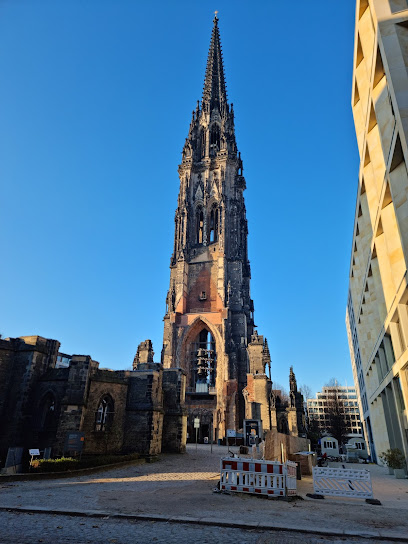
Hamburg Townhall
Discover Hamburg's majestic Town Hall: a neo-Renaissance masterpiece, a symbol of Hanseatic pride, and a vibrant center of city life, offering guided tours and historical insights.
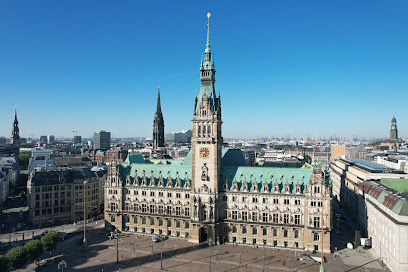
Chile House
Discover the Chile House in Hamburg: A stunning example of Brick Expressionist architecture, shaped like a ship, symbolizing the city's maritime past and economic strength.
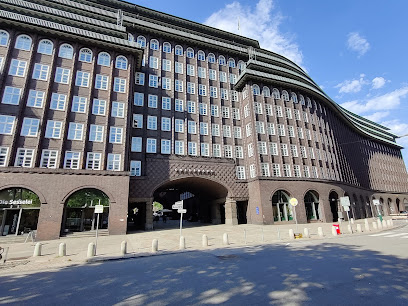
Speicherstadt
Explore the enchanting Speicherstadt in Hamburg, a UNESCO World Heritage Site with stunning architecture, historic canals, and captivating museums, offering a unique glimpse into the city's maritime past.
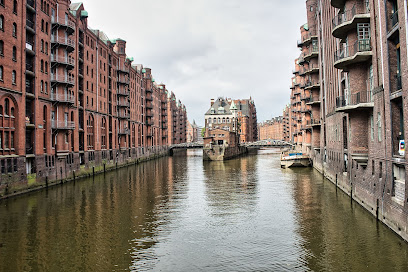
House of Seafaring
Discover the House of Seafaring in Hamburg-Mitte, a historical landmark that embodies the city's rich maritime heritage and enduring connection to the sea, offering a glimpse into its nautical past.
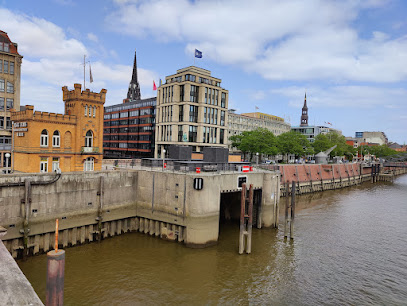
Heinrich Heine Monument
A poignant tribute to the celebrated German poet Heinrich Heine, whose monument stands as a symbol of artistic expression and historical reflection in the heart of Hamburg.
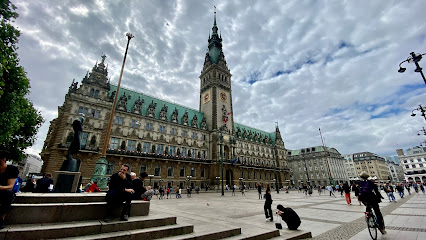
Hulbe house
Discover the Hulbe House in Hamburg: A stunning example of Dutch Renaissance Revival architecture, adorned with Green Men carvings and topped with a golden cog, a true Hanseatic gem.
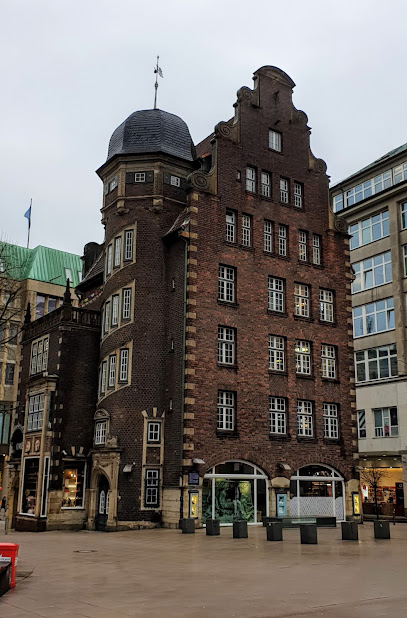
Skulptur
Discover Hamburg's artistic side at Skulptur, an open-air sculpture garden in Hamburg-Mitte, offering a tranquil escape with thought-provoking art and beautiful landscaping year-round.
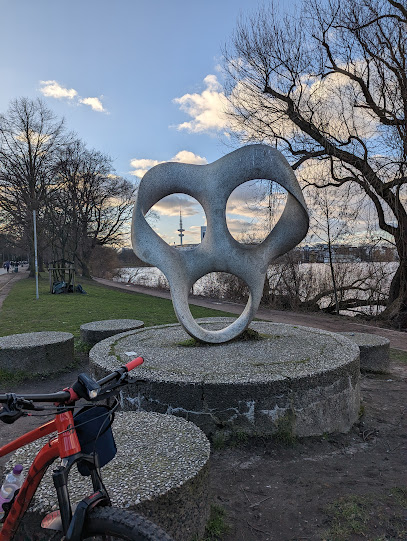
Bleichensteg
Discover Bleichensteg in Hamburg: a picturesque canal district blending historic charm with modern vibrancy, offering scenic waterways, cultural experiences, and a tranquil escape in the city center.
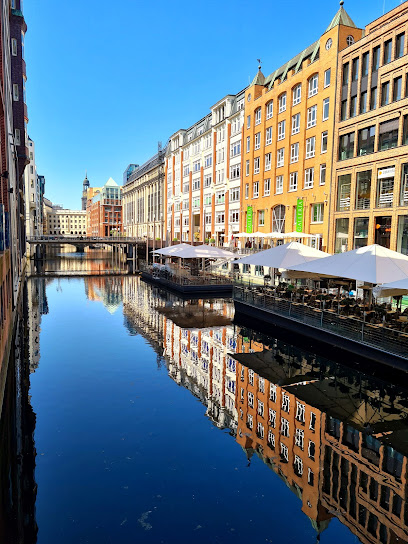
City of Hamburg Germany
Explore Hamburg: A vibrant metropolis where maritime history meets modern innovation, offering iconic landmarks, diverse culture, and unforgettable experiences.
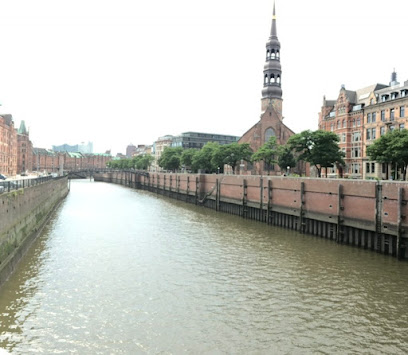
Unmissable attractions to see
Elbphilharmonie Hamburg
Experience the architectural wonder of Elbphilharmonie, Hamburg's premier concert hall and observation deck with breathtaking views and world-class performances.
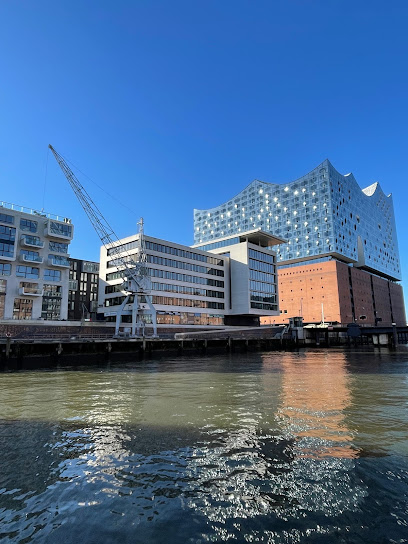
Hamburg Dungeon
Explore Hamburg's dark past at the Hamburg Dungeon, where history comes alive through thrilling performances and immersive storytelling.
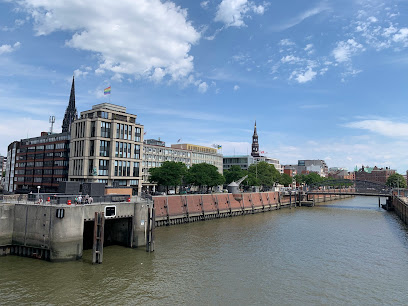
Hamburger Kunsthalle
Discover the Hamburger Kunsthalle, a cultural gem in Hamburg featuring a vast collection of art from the Middle Ages to contemporary works in a stunning setting.
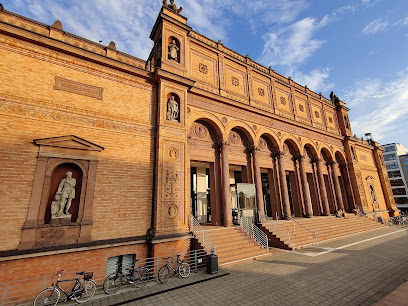
St. Nikolai Memorial
Explore the St. Nikolai Memorial in Hamburg, a breathtaking monument reflecting resilience and rich history, offering panoramic views of the city.
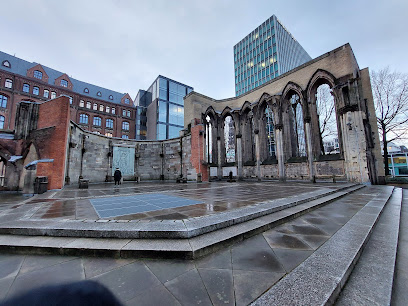
Chile House
Discover the architectural wonder of Chile House in Hamburg, a stunning example of Brick Expressionism and a historical landmark worth exploring.
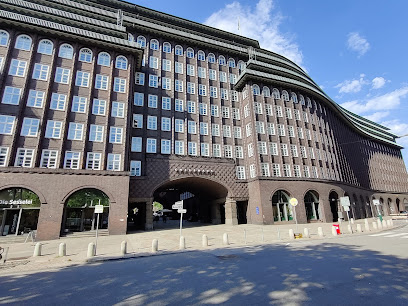
Speicherstadt
Explore Speicherstadt, Hamburg's enchanting UNESCO World Heritage site, where historic warehouses meet scenic canals and cultural treasures await.
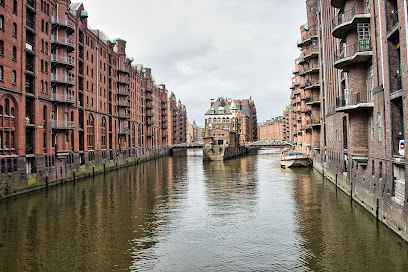
Skulptur
Explore Skulptur in Hamburg - a stunning outdoor art gallery where nature and creativity converge for an unforgettable experience.
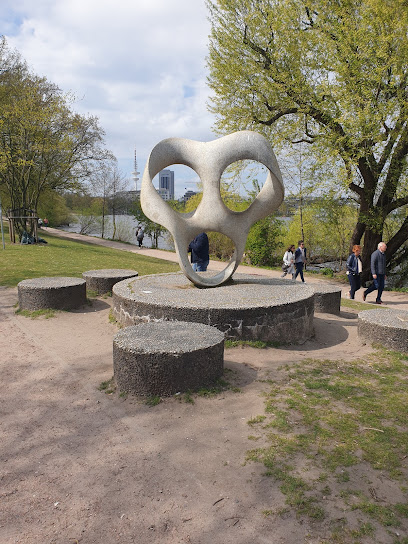
Bleichensteg
Explore the picturesque Bleichensteg in Hamburg, a tranquil oasis of beauty, history, and culture perfect for leisurely strolls and stunning photography.
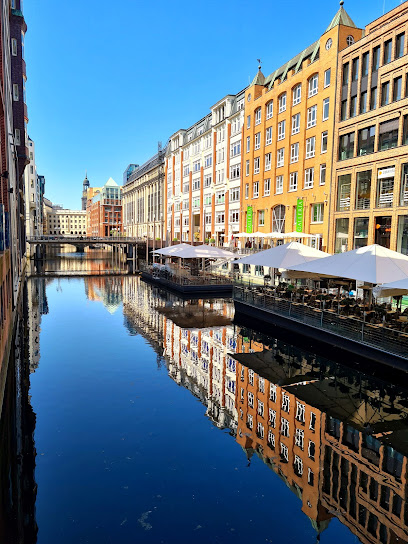
Essential places to dine
Restaurant Kartoffelkeller
Savor authentic German flavors at Restaurant Kartoffelkeller in Hamburg – a delightful culinary experience awaits!
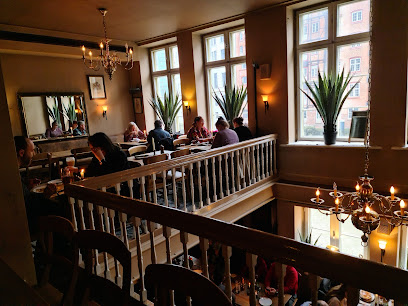
Restaurante Español Picasso
Experience authentic Spanish cuisine at Restaurante Español Picasso in Hamburg, where every dish tells a story from the Mediterranean.
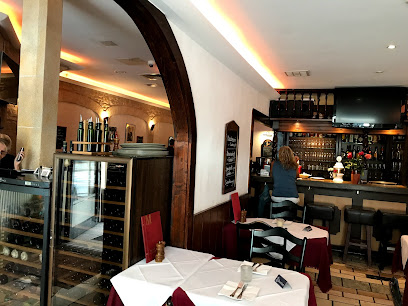
Restaurant Parlament Hamburg
Discover authentic German cuisine at Restaurant Parlament in Hamburg, where tradition meets modern dining in a historic setting.
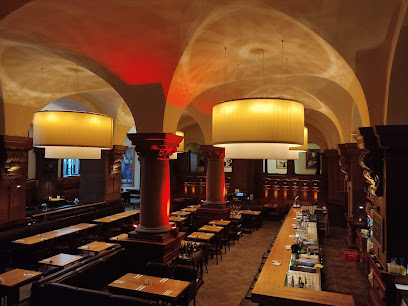
Tschebull Restaurant|Beisl|Bar
Discover authentic Austrian cuisine at Tschebull Restaurant in Hamburg - where tradition meets culinary excellence.
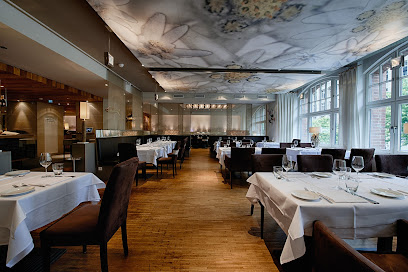
Le Plat du Jour
Discover authentic French cuisine at Le Plat du Jour in Hamburg – where every dish tells a story of culinary excellence.
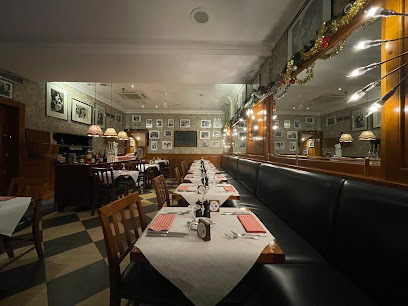
I Vigneri Osteria Enoteca
Experience authentic Marche cuisine at I Vigneri Osteria Enoteca in Hamburg, where exquisite dishes meet an extensive wine selection.
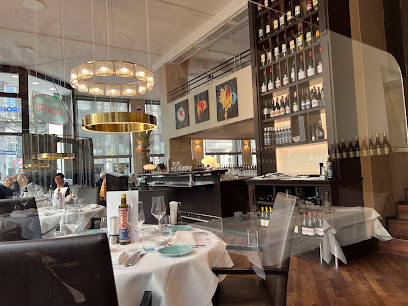
THE DINING RooM
Discover the exquisite flavors of American, French, and German cuisine at The Dining RooM in Hamburg - a fine dining experience like no other.
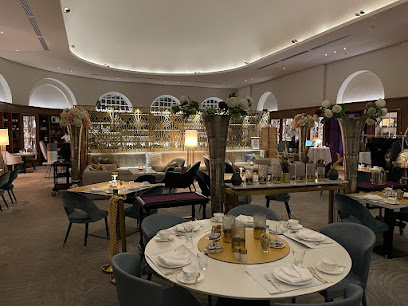
Restaurant Perle
Discover Hamburg's culinary treasure at Restaurant Perle, where local flavors meet modern elegance in every dish.
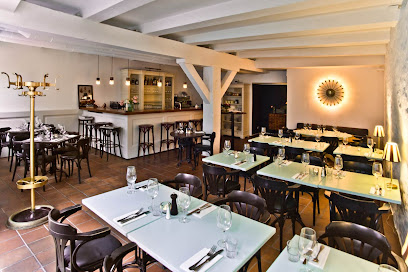
Wloka‘s
Savor authentic German Hausmannskost at Wloka's in Hamburg-Mitte - A must-visit for food lovers seeking traditional flavors.
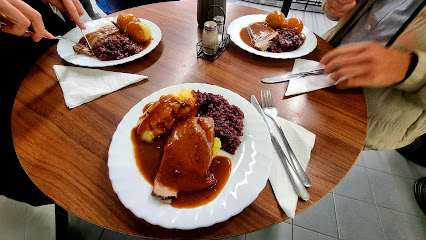
Kornhauskeller
Experience the best of Mediterranean and Middle Eastern cuisine at Kornhauskeller in Hamburg's vibrant bistro scene.
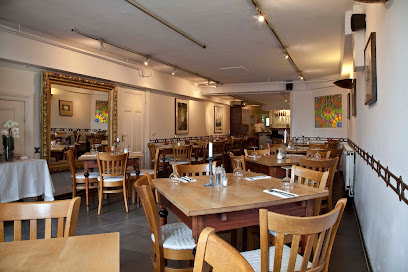
Markets, malls and hidden boutiques
Europa Passage
Experience the essence of Hamburg shopping at Europa Passage, where style and culture blend seamlessly.
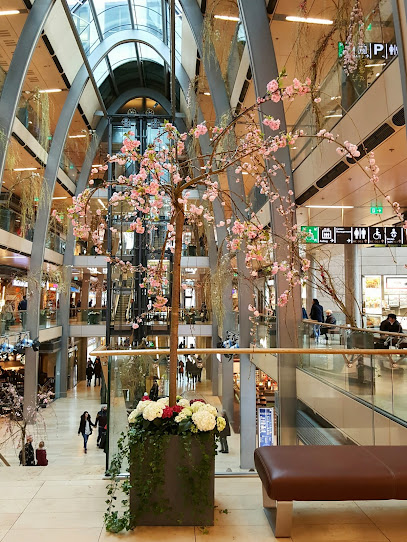
GALERIA Hamburg Mönckebergstraße
Discover the heart of shopping in Hamburg at GALERIA Hamburg Mönckebergstraße, where retail therapy meets vibrant city life.
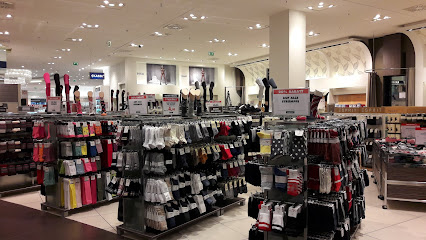
Alsterhaus
Discover luxury shopping in Hamburg at Alsterhaus, where fashion meets elegance in an unforgettable retail experience.
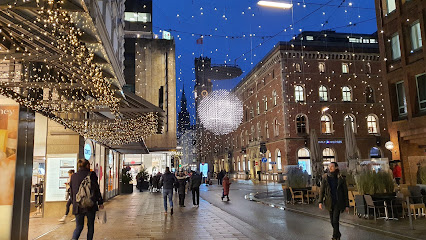
Levantehaus
Discover the elegance of Levantehaus in Hamburg: a shopping mall offering luxury boutiques, diverse dining options, and a vibrant atmosphere.
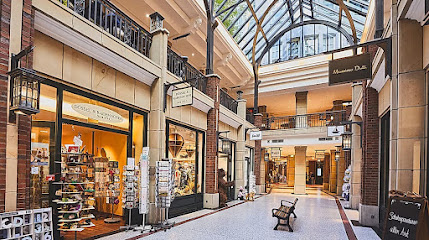
Elbenwald
Explore the enchanting world of Elbenwald in Hamburg, a magical gift shop filled with fantasy collectibles, clothing, and toys for fans of all ages.
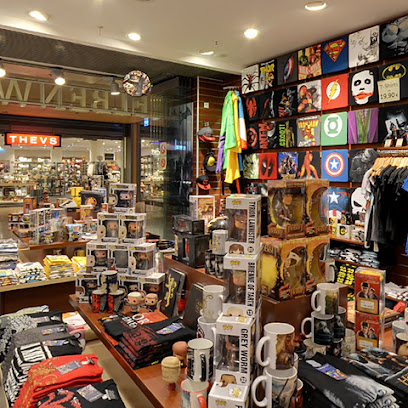
Urban Outfitters
Discover unique fashion, accessories, and home goods at Urban Outfitters in Hamburg - a vibrant shopping experience in the heart of the city.
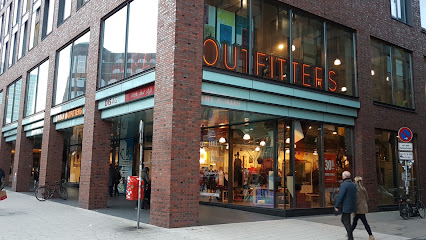
Vintage & Rags
Explore Vintage & Rags in Hamburg for unique, eco-friendly fashion treasures that celebrate individuality and sustainable shopping.
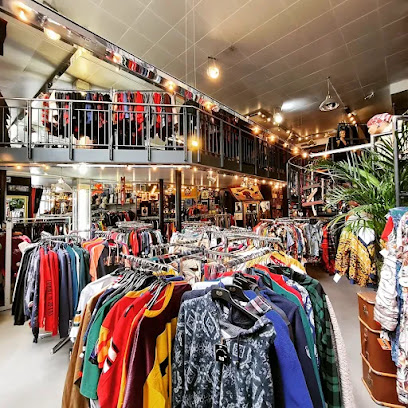
Kaufhaus Hamburg
Discover unique gifts, local art, and gourmet delights at Kaufhaus Hamburg – your go-to destination for unforgettable souvenirs.
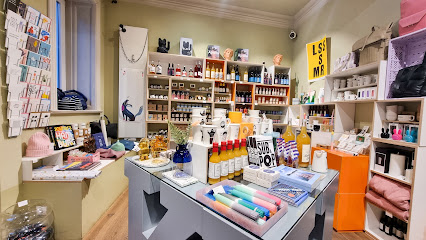
53 ° Hamburg | Store | CMD
Explore 53 ° Hamburg for unique clothing, custom designs, and authentic souvenirs along the beautiful Elbe River promenade.
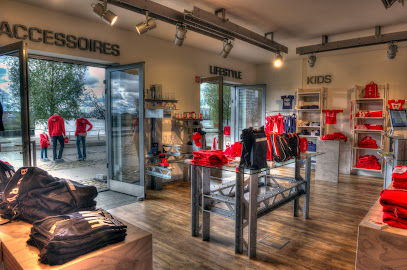
The Art of Hamburg
Explore Hamburg's creative spirit at The Art of Hamburg, where art, fashion, and unique souvenirs create an unforgettable shopping experience.
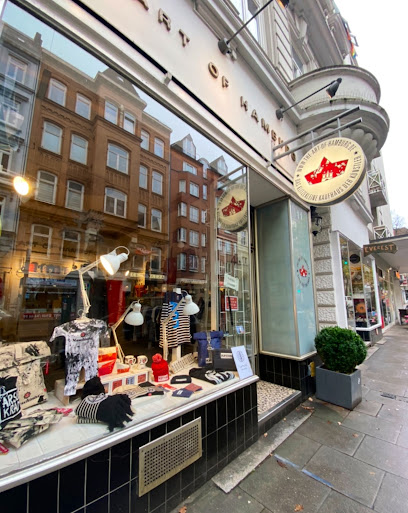
Essential bars & hidden hideouts
Irish Pub in the Fleetenkieker
Immerse yourself in the lively spirit of the Irish Pub in the Fleetenkieker, Hamburg, where great food, drinks, and live music await.
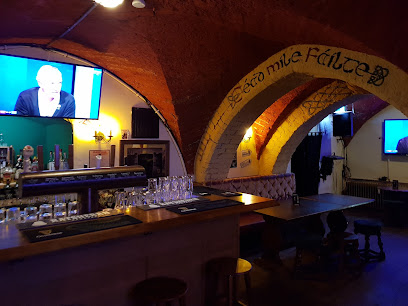
Le Lion • Bar de Paris
Experience the elegance of Paris at Le Lion, Hamburg's premier bar for exquisite cocktails and sophisticated ambiance.
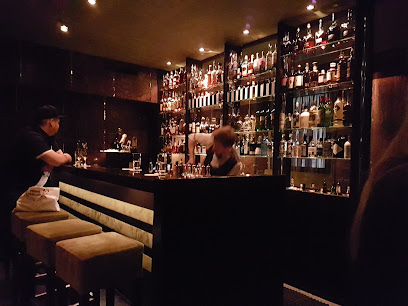
Paddy's Bar
Discover the vibrant atmosphere of Paddy's Bar, Hamburg's favorite Irish pub, offering hearty meals, a wide drink selection, and live music.
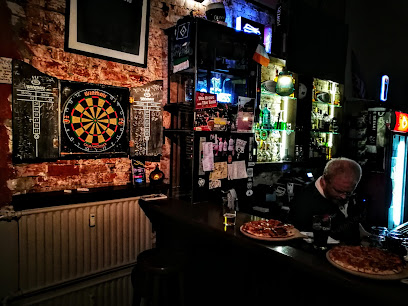
CIU` DIE BAR
Discover CIU` DIE BAR in Hamburg for innovative cocktails, a stylish atmosphere, and an unforgettable nightlife experience.
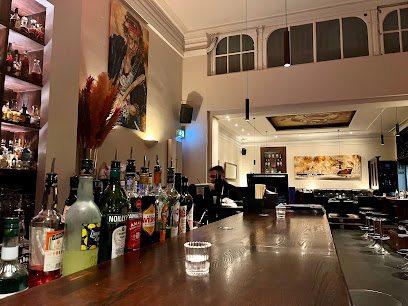
Whiskyplaza & Altstadt Restaurant am Fleet
Discover Hamburg's Whiskyplaza & Altstadt Restaurant, a culinary haven where fine dining meets an exquisite cocktail experience in a historic setting.
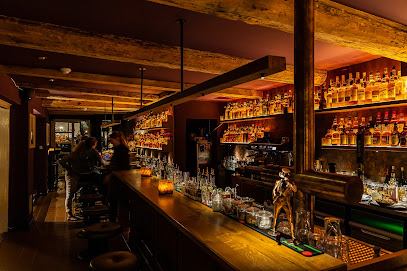
The Bohemian - Bar
Discover The Bohemian, Hamburg's premier cocktail bar, known for its signature drinks and vibrant nightlife in the heart of the city.
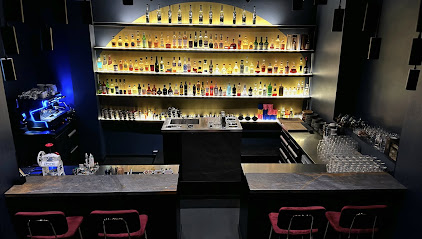
Gugu Bar
Experience the vibrant nightlife of Hamburg at Gugu Bar, where eclectic decor meets an extensive drink menu in a lively atmosphere.
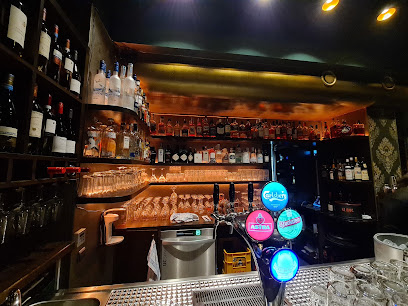
Liquid Garden - Cocktailbar
Discover Liquid Garden, Hamburg's vibrant cocktail bar where creativity and flavor blend for unforgettable nights and unique drinks.
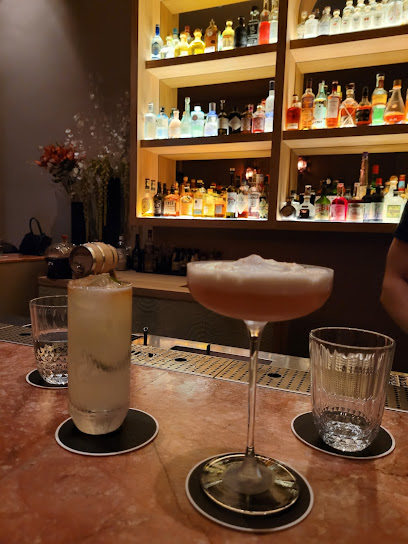
Ba Nomu | Bar
Discover Ba Nomu, Hamburg's cocktail haven, where creativity meets taste in a vibrant, stylish atmosphere perfect for unforgettable nights.
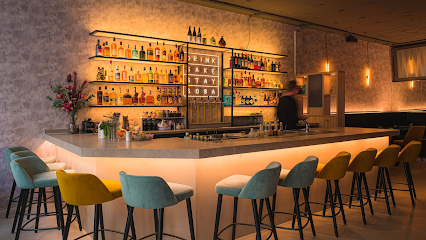
Central Congress
Experience the trendy ambiance and innovative drinks at Central Congress, Hamburg's must-visit bar that caters to every night owl.
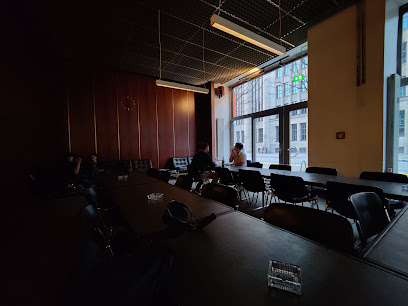
Local Phrases
-
- HelloHallo
[ha-lo] - GoodbyeAuf Wiedersehen
[ouf vee-der-zay-en] - YesJa
[yah] - NoNein
[nine] - Please/You're welcomeBitte
[bit-te] - Thank youDanke
[dahn-ke] - Excuse me/SorryEntschuldigung
[ent-shool-di-gung] - How are you?Wie geht es Ihnen?
[vee gayt es een-en] - Fine. And you?Gut. Und Ihnen?
[goot oont een-en] - Do you speak English?Sprechen Sie Englisch?
[shpre-khen zee eng-lish] - I don't understandIch verstehe nicht
[ikh fer-shtay-e nikht]
- HelloHallo
-
- I'd like to see the menu, pleaseIch möchte bitte die Speisekarte sehen
[ikh mehrkhte bit-te dee shp-eye-ze-kar-teh zay-en] - I don't eat meatIch esse kein Fleisch
[ikh es-se kine fly-sh] - Cheers!Prost!
[prohst] - I would like to pay, pleaseIch möchte bitte bezahlen
[ikh mehrkhte bit-te beh-tsal-en]
- I'd like to see the menu, pleaseIch möchte bitte die Speisekarte sehen
-
- Help!Hilfe!
[hil-feh] - Go away!Geh weg!
[gey vekh] - Call the Police!Rufen Sie die Polizei!
[roo-fen zee dee po-leet-sai] - Call a doctor!Rufen Sie einen Arzt!
[roo-fen zee i-nen ahrts] - I'm lostIch habe mich verirrt
[ikh hah-beh meekh feh-rirt] - I'm illIch bin krank
[ikh been krank]
- Help!Hilfe!
-
- I'd like to buy...Ich möchte kaufen...
[ikh mehrkhte kow-fen] - I'm just lookingIch schaue nur
[ikh sh-ow-e noor] - How much is it?Wie viel kostet es?
[vee feel koh-stet es] - That's too expensiveDas ist zu teuer
[dahs ist tsoh toy-er] - Can you lower the price?Können Sie den Preis senken?
[koo-nen zee den prees zen-ken]
- I'd like to buy...Ich möchte kaufen...
-
- What time is it?Wie spät ist es?
[vee shpeht ist es] - It's one o'clockEs ist ein Uhr
[es ist iyn oor] - Half past (10)Halb zehn
[halb tsayn] - MorningMorgen
[mohr-gen] - AfternoonNachmittag
[nahkh-mit-tahk] - EveningAbend
[ah-bent] - YesterdayGestern
[gehs-tern] - TodayHeute
[hoi-teh] - TomorrowMorgen
[mohr-gen] - 1Eins
[iyns] - 2Zwei
[tsvay] - 3Drei
[dry] - 4Vier
[feer] - 5Fünf
[foontf] - 6Sechs
[zeks] - 7Sieben
[zee-ben] - 8Acht
[ahkt] - 9Neun
[noyn] - 10Zehn
[tsayn]
- What time is it?Wie spät ist es?
-
- Where's a/the...?Wo ist ein/der...?
[vo ist iyn/der] - What's the address?Was ist die Adresse?
[vas ist dee ah-drehs] - Can you show me (on the map)?Können Sie mir zeigen (auf der Karte)?
[koo-nen zee meer tsay-gen (ouf der kar-teh)] - When's the next (bus)?Wann ist der nächste (Bus)?
[vahn ist der nekh-ste (boos)] - A ticket (to ....)Eine Fahrkarte (nach ....)
[i-ne fahr-kar-teh (nahkh)]
- Where's a/the...?Wo ist ein/der...?
History of Altstadt
-
Altstadt, meaning 'Old Town', is the birthplace of Hamburg, established in the 9th century. The earliest settlement was founded by Charlemagne as a fortification, which led to the establishment of a trading post on the banks of the Elbe River. This strategic location facilitated trade and commerce, setting the foundation for Hamburg's growth as a significant port city.
-
In the 13th century, Hamburg joined the Hanseatic League, a powerful trade alliance of northern European cities. This membership propelled Altstadt into a thriving hub of commerce, where merchants traded goods such as spices, textiles, and grain. The prosperity of this era is reflected in the architecture of Altstadt, with many buildings showcasing the wealth accumulated during this time.
-
A catastrophic fire swept through Altstadt in May 1842, destroying over 1,700 buildings, including many historical structures. The aftermath of the fire led to significant urban reconstruction, introducing modern building regulations and architectural styles. This event marked a turning point in the architectural evolution of Hamburg, leading to the development of the city we see today.
-
During World War II, Altstadt suffered extensive damage due to bombing raids. The historic city center was heavily impacted, with many buildings reduced to ruins. Post-war reconstruction efforts focused on restoring the historical character of Altstadt, while also incorporating modern urban planning principles. The reconstruction symbolizes Hamburg’s resilience and commitment to preserving its cultural heritage.
-
The late 20th century witnessed a cultural renaissance in Altstadt, with an influx of artists, musicians, and cultural institutions. The establishment of theaters, galleries, and music venues revitalized the neighborhood, turning it into a vibrant cultural hotspot. Events such as the Hamburg DOM fair and the Reeperbahn Festival further enhanced the area's reputation as a center for arts and entertainment.
Altstadt Essentials
-
Altstadt is centrally located in Hamburg and can be easily accessed from various neighborhoods. From Hamburg Hauptbahnhof (main train station), take the U1 or U3 subway lines to the Rödingsmarkt or Rathaus stations, which are both within walking distance of Altstadt. If you're coming from the airport, the S1 train connects Hamburg Airport to the central station in about 30 minutes. Buses and taxis are also readily available throughout the city.
-
Altstadt is compact and best explored on foot. The Hamburg public transport system is efficient, with several U-Bahn (subway) and S-Bahn (commuter train) stations nearby, including Rathaus and Rödingsmarkt. Buses also serve the area extensively. For those who prefer cycling, bike rentals are available, and cycling paths are well-marked. Taxis can be hailed or booked via apps for convenience.
-
Altstadt is generally a safe neighborhood for tourists. However, like any urban area, it's wise to stay vigilant, particularly in crowded places like markets and public transport. Areas around the main train station can sometimes attract petty crime, so keep your belongings secure. Avoid any poorly lit streets at night and be cautious of your surroundings.
-
In case of an emergency, dial 112 for fire and medical assistance or 110 for police. Local hospitals and medical centers are available in the area. It's advisable to have travel insurance for medical emergencies. For minor health issues, pharmacies in Altstadt can provide over-the-counter medications.
-
Fashion: Do dress appropriately when visiting churches or formal venues; casual attire is acceptable elsewhere. Religion: Do respect local customs, especially in religious sites; be quiet and considerate. Public Transport: Do validate your ticket before boarding and offer your seat to those in need. Don't eat or drink on public transport. Greetings: Do greet with a friendly 'Hallo' or 'Guten Tag.' Don't assume familiarity; a handshake is appropriate. Eating & Drinking: Do try local specialties and enjoy meals at traditional restaurants. Don't engage in loud conversations or disruptive behavior in eateries.
-
To experience Altstadt like a local, explore the historic warehouses and canals by taking a stroll along the Speicherstadt and the Fleetinsel. Visit the local cafes and bakeries for a slice of traditional cake or a coffee. Don't miss the weekly markets for fresh produce and local crafts. Engage with locals, as they often appreciate visitors' interest in their history and culture. For a unique view, consider taking a boat tour on the Alster Lake.
Nearby Cities to Altstadt
-
Things To Do in Lubeck
-
Things To Do in Bremen
-
Things To Do in Hannover
-
Things To Do in Rostock
-
Things To Do in Sønderborg
-
Things To Do in Nyborg
-
Things To Do in Odense
-
Things To Do in Ribe
-
Things To Do in Næstved
-
Things To Do in Kolding
-
Things To Do in Slagelse
-
Things To Do in Groningen
-
Things To Do in Esbjerg
-
Things To Do in Munster
-
Things To Do in Vejle











